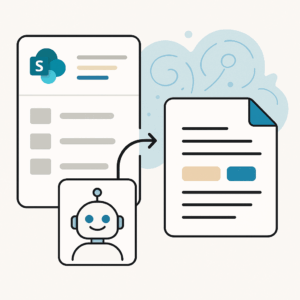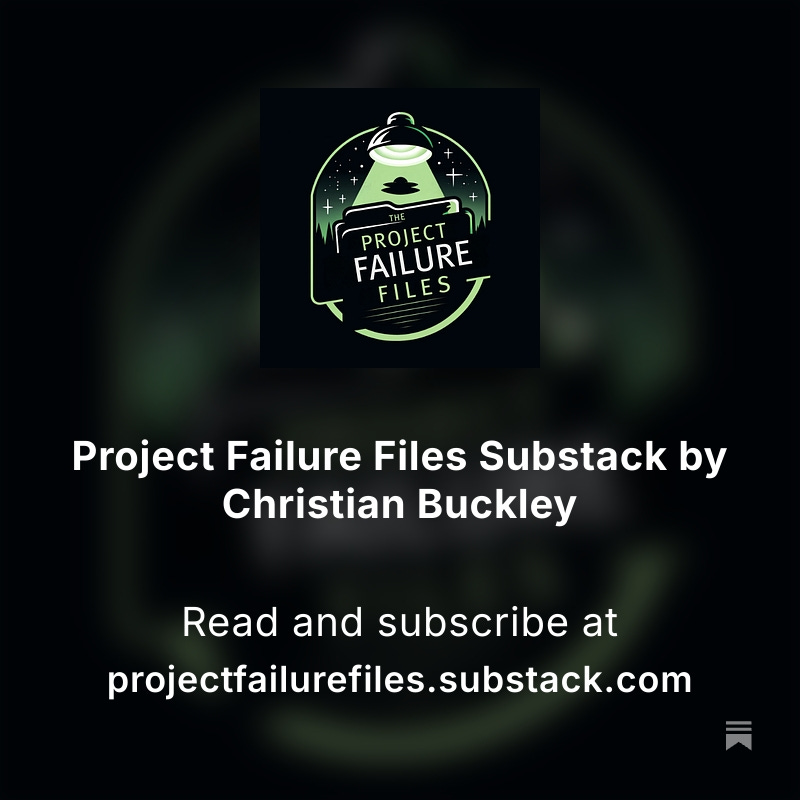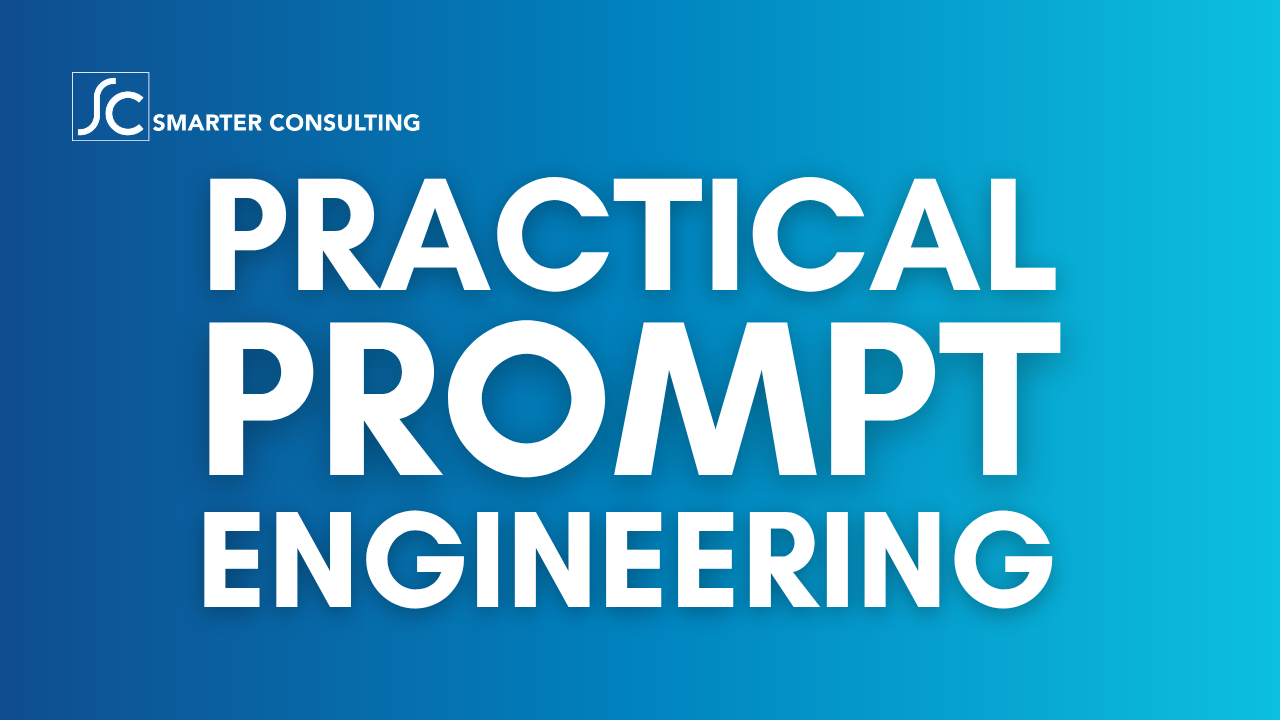SharePoint’s Knowledge Agent
There’s something poetic about watching SharePoint come full circle.
 For those of us who’ve been working with it since back when site columns and content types were cutting-edge, the arrival of the SharePoint Knowledge Agent feels oddly familiar but at the same time, like peering into the future. It doesn’t reinvent the platform. It doesn’t try to be flashy. What it does is finally connect the dots between structured content and artificial intelligence.
For those of us who’ve been working with it since back when site columns and content types were cutting-edge, the arrival of the SharePoint Knowledge Agent feels oddly familiar but at the same time, like peering into the future. It doesn’t reinvent the platform. It doesn’t try to be flashy. What it does is finally connect the dots between structured content and artificial intelligence.
And that makes it the most exciting SharePoint update in years.
Metadata Was Always the Magic
If you’ve worked with SharePoint for more than five minutes, you’ve probably had the same conversations I have. We’ve all talked about tagging documents, creating views, building structure so users can find things faster. We did our best. Sometimes people followed the rules. Sometimes not.
My earliest presentations at SharePoint Saturday and other community events focused on metadata, taxonomy, governance, and social collaboration. A lot of that thinking traced back to conversations from the mid-90s around best practices for capturing and cataloging an organization’s information assets. Classification and tagging were challenges long before SharePoint—and they’ve remained challenges ever since. The problem was never what SharePoint could do. It was always getting people to actually do it.
Now, Microsoft’s Knowledge Agent is stepping in to do some of that heavy lifting. It brings AI right into the heart of SharePoint libraries, not to replace information architecture, but to make it more automatic, more consistent, and more useful.
Organize This Library: AI That Actually Helps
The standout feature is called Organize This Library, and it’s exactly what it sounds like.
With one click, the Knowledge Agent scans your documents and suggests new metadata columns based on their content. It might recommend adding a “Review Date,” “Policy Owner,” or “Document Type.” You get to decide which suggestions to keep, which to edit, and which to ignore. You’re always in control.
Behind the scenes, it’s using GPT-4 to read the documents and extract structure. That means unstructured files become filterable, queryable, and findable.
This isn’t just a UX upgrade. It’s a paradigm shift. Because once that metadata is in place, Copilot can finally reason over it.
AI That Understands Context
Until now, even the smartest Microsoft 365 AI couldn’t tell a draft from a final version or a vacation policy from a disciplinary one unless the filename spelled it out. But with structured metadata, automatically created and populated, the game changes.
You can now ask Copilot things like:
- “What changed between version 1 and version 2 of our birthday leave policy?”
- “Which policies would be affected by changes to EEO regulations?”
- “Show me all leave-related documents reviewed in the last 6 months.”
And it works, because the structure is there to support it. Not only does this improve Copilot’s answers, it lifts the whole SharePoint experience. You get smarter views, better filtering, and more confidence that you’re looking at the right information.
This Is What We’ve Been Waiting For
Microsoft has been saying for a while that to get value from Copilot, you need your data estate in order. That was always easier said than done. Most organizations don’t have clean metadata. Even fewer have users who tag consistently. And the idea that we’d all suddenly become expert prompt engineers? Unrealistic.
That’s why this update matters so much. Knowledge Agent fills the messy middle. It doesn’t assume perfection. It doesn’t ask users to change. It quietly improves what’s already there at scale.
Even better, it surfaces structure where none existed before.
Got a messy policy library? Let the agent suggest metadata. Need a better way to find templates versus published docs? Add a column and let it classify for you. Want to be alerted when anything tagged as “leave-related” gets uploaded? Create a simple rule.
The best part is that you don’t need to know Power Automate, JSON, or advanced SharePoint voodoo. You just talk to it in plain language.
Still a Preview, But Pointed in the Right Direction
Is it perfect? Not yet.
It doesn’t work with lists. It leans toward basic text fields instead of smarter field types like choice lists. It samples a small number of files when suggesting columns, so it might miss bigger patterns. And while the automation is useful, it’s still a lightweight rules engine, not a replacement for full workflows.
But here’s the thing. It’s heading in the right direction.
For the first time, Microsoft is building an AI layer that respects the structure we’ve been preaching about for years. More importantly, they’re giving us tools to build that structure faster and smarter, without relying on users to get everything right.
There’s something nostalgic about this moment. The Knowledge Agent reminds me of the early SharePoint days when we believed metadata would save us. Back then, we were mostly on our own. I remember writing governance docs, leading sessions and workshops, and hoping users would remember to fill in a column before clicking save.
Now, SharePoint has a new partner. One that reads, understands, suggests, and fills in the blanks. It’s not just Copilot strapped onto a library. It’s SharePoint with perspective.
And maybe, just maybe, this is the moment where SharePoint becomes more than a place we store content. It becomes a place where knowledge lives, breathes, and evolves with a little help from the robots.





